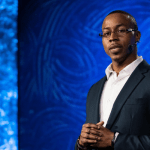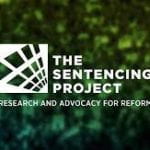
Today, I interviewed Jarell Daniels of the Justice Ambassadors. He is a Columbia University graduate who helps the youth who are affected by the government prison system in any way shape or form. Jarrell used to be a member of the BLOODS, a gang originally formed in the 70’s. My social justice group, studying the Juvenile Prison System met with him over video and learned a whole lot more about our topic. He talked a lot about the importance of building a community that you could trust, and how implementing organizations similar to his into normal society will prevent the likelihood of juveniles going back to prison. His fondation in particular runs a course for 18-25 year olds, all of which are underprivileged kids. Jarrell’s goal is to change systems, foster institutional change, and resolve issues in the community.
One of the main things that he told us while we chatted with him was another common theme; the most incarcerated youth groups were all living in marginalized communities and had poor living conditions. We learned that your access to healthy food in your community, your education and even your housing conditions have a big impact on mental health and your likelihood of being imprisoned. Neighborhoods like East Harlem, Mount Vernon in The Bronx, and some areas of Bedford Stuyvesant in Brooklyn are all places that have low incomes in NYC. All of this info Jarrell has given us came from personal experience. As a former gang member and someone deeply affected by the prison system (being arrested and incarcerated for 6 years of his life) he has great insight on this topic. Seeing how it messes with people’s lives and his in particular, he used that as a driving force, an inspiration even, to turn his life around and start the Justice Ambassadors. Now he is a scholar who creates opportunities for those who were in similar positions as him when he was younger. That right there, is how you create change. The last piece of advice Jarrell gave us was to sign up for different programs, and initiatives to try and keep the youth out of the government prison systems. He told us to research the Next Generation Politics, a group focused on spreading awareness about this issue and ways to help through activism and donations.
Thanks to our meeting with Jarrell Daniels, I learned about different ways to help juveniles around the city and got a little bit more information on why and how the prison systems impact our communities.
Read more















